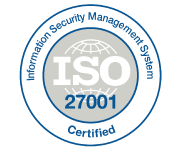See What's Trending In The Background Check Industry
The Evolution of Background Checks: From Manual to Digital
 The process of conducting background checks has undergone a significant transformation over the years, evolving from manual, paper-based methods to sophisticated digital platforms. Driven by technological advancements, this evolution has not only streamlined the process but has also enhanced its efficiency and reliability. Today, the digitization of background checks is a crucial component in various sectors, including employment background checks, identity verification, vendor compliance, and security clearance.
The process of conducting background checks has undergone a significant transformation over the years, evolving from manual, paper-based methods to sophisticated digital platforms. Driven by technological advancements, this evolution has not only streamlined the process but has also enhanced its efficiency and reliability. Today, the digitization of background checks is a crucial component in various sectors, including employment background checks, identity verification, vendor compliance, and security clearance.
The Era of Manual Background Checks
Traditionally, background checks were predominantly manual. These involved physical paperwork, phone calls, and even in-person visits to courthouses or other institutions to gather information. The process was time-consuming, labor-intensive, and prone to human error. The manual system also limited the scope of searches due to geographical constraints and reliance on public records that may not have been digitized.
The Transition to Digital Platforms
The advent of digital technology marked a massive advancement in the way background checks are conducted. The transition to digital platforms enabled the aggregation and analysis of data from a wide range of sources. Digital databases allowed instant access to various records, including criminal histories, credit reports, employment histories, and educational credentials. This transition has made background checks more efficient, accurate, and far-reaching.
Today, background checks have become a standard part of the employment process. A 2021 study shows that 93% of employers worldwide conduct some form of employment background screening.
 The Benefits of Digital Background Checks
The Benefits of Digital Background Checks
- Efficiency: Digital background checks are significantly faster than manual processes. They can aggregate data from multiple sources quickly, reducing the turnaround time from days or weeks to mere hours or minutes in some cases.
- Accuracy and reliability: Digital checks reduce the likelihood of human error and provide more accurate results. Automated systems can cross-reference and validate information, ensuring a higher level of reliability.
- Wider scope: Digital platforms can access a broader array of databases, including ones at national or international levels. This wider scope makes it possible to conduct thorough background checks regardless of geographical boundaries.
- Cost-effectiveness: Automating the background check process reduces the need for extensive manpower and resources, making it a more cost-effective solution for organizations.
- Compliance: Digital systems can be updated to comply with legal and regulatory changes more efficiently, helping organizations adhere to compliance standards in their background check processes.
Challenges and Considerations in Background Checks
While digital background checks offer numerous advantages, they also present challenges, particularly concerning data security and privacy. Protecting sensitive personal information is crucial, necessitating robust cybersecurity measures. Additionally, ensuring that digital background checks comply with legal standards, such as the Fair Credit Reporting Act (FCRA) in the United States, is crucial.
 ISB Global Services: Providing Cutting-Edge Background Check Services
ISB Global Services: Providing Cutting-Edge Background Check Services
ISB Global Services has harnessed the power of digital background checks, offering comprehensive and efficient solutions. Their services utilize advanced technology to provide accurate and timely background checks, catering to various needs, from employment screening to risk management. The integration of ISB’s services into an organization's background check process streamlines operations, ensures compliance, and enhances decision-making, all while maintaining the highest standards of data security and privacy. With the support of ISB Global Services, organizations can leverage these advancements to their fullest potential, ensuring a thorough and compliant background check process.







While we are not affiliated with or employed by these organizations, we may reference our verified status in marketing materials, proposals, and client communications to demonstrate ISB’s commitment to compliance and security.